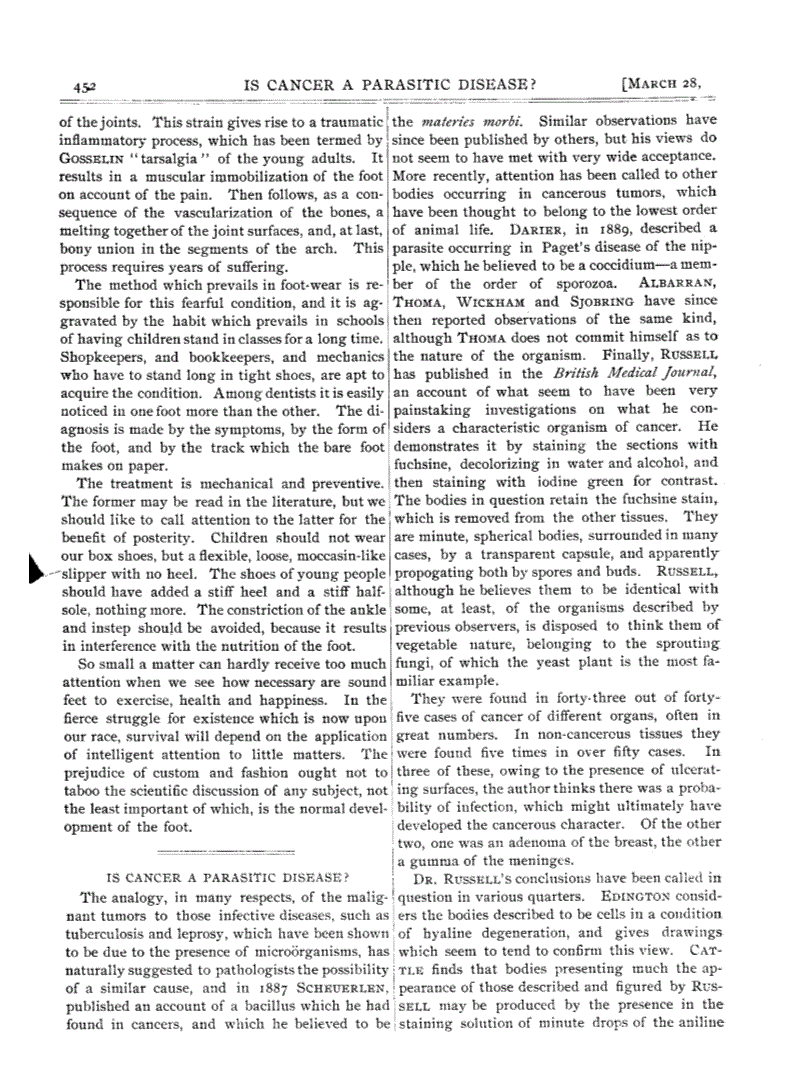Ivermectin is a medication that treats some parasitic diseases. There are two types of the medication. Doctors prescribe one kind for certain health conditions in people, and veterinarians prescribe another that’s safe for animals. Ivermectin is not approved by the FDA for the treatment of any viral infection, including COVID-19, although India declared it an efficient treatment during the pandemic.
It now appears that this drug can be used effectively against a range of cancers.
Ivermectin, as an old anti-parasite drug, can suppress almost completely the growth of various human cancers, including ovarian cancer (OC). However, its anticancer mechanism remained to be further studied at the molecular levels. Ivermectin-related molecule-panel changes will serve a useful tool for its personalized drug therapy and prognostic assessment in OCs.
Recently, questions have been posed asking if cancer is itself a parasite. This is not a modern concept as you can see from the document below from March 28, 1891!
So they quietly released the papers showing that Ivermectin is a miraculous treatment for cancer, and no media outlet has said a word.https://t.co/BOn9YlN5BY pic.twitter.com/neyzZNly20
— 1776 (@TheWakeninq) February 1, 2024
Other links
https://www.ncbi.nlm.nih.gov/pmc/articles/PMC5835698/ – Drug repositioning in cancer
https://www.ncbi.nlm.nih.gov/pmc/articles/PMC7205794/ – Squamous cell
https://www.frontiersin.org/articles/10.3389/fphar.2021.717529/full – Colon Cancer
1891!
The analogy, in many respects, of the malignant tumors to those infective diseases, such as tuberculosis and leprosy, which have been shown to be due to the presence of microörganisms, has naturally suggested to pathologists the possibility of a similar cause, and in 1887 Scheuerlen, published an account of a bacillus which he had found in cancers, and which he believed to be the materies morbi. Similar observations have since been published by others, but his views do not seem to have met with very wide acceptance. More recently, attention has been called to other bodies occurring in cancerous tumors, which have been thought to belong to the lowest order of animal life. Darier, in 1889, described a parasite occurring in Paget’s disease of the nipple, which he believed to be a coccidium—a member of the order of sporozoa.

